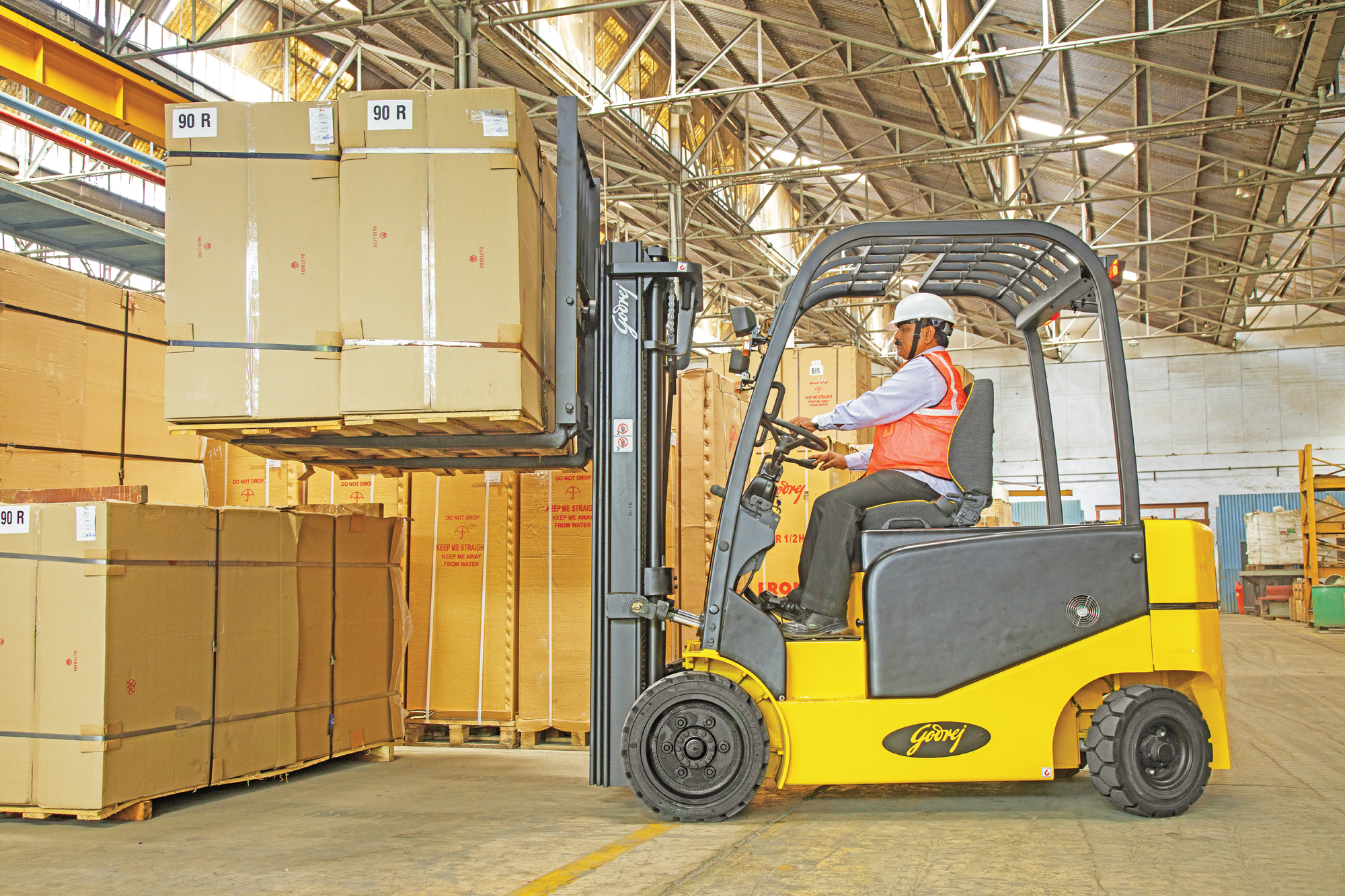Godrej Material Handling modifies forklifts for higher efficiency
By Edit Team | November 3, 2018 7:25 am SHARE

Ever since the scientific community discovered global warming in the 1960s, environmentalists have been advocating the use of cleaner technology. Adding to this, we have seen an increased political fervour in the last two decades to reduce the carbon emissions caused by the fossil fuels. Over the years, the world saw the development of hybrid drive-powers to a completely electric-driven technology. Only in the last decade did we see the commercial use of these technologies. By putting the “Roadster” on a trajectory to Mars, Tesla has put on display the electric car technology for the whole world to see.
Electric-driven vehicles (EVs) are the best plausible way out of the quagmire of pollution and fuel resource crunch. And considering that 14 of the world’s 20 most polluted cities are in India, the government has taken certain stringent measures to increase the share of EVs in the vehicles plying on the Indian roads. Apart from the government’s push, various start-ups and established automakers are driving the EV show in India, in a bid to create a self-sustaining electric vehicle ecosystem. According to a report by the society of manufacturers of electric vehicles, there has been a 37.5 per cent rise in the sale of EVs in India in recent years.
If auto Industry is driving down the EV path, can material handling be far behind. Godrej Material Handling were the pioneer to bring the electric-powered forklifts to the Indian market. There has been slow and steady development in the electric-powered forklifts in India. The entry of MNCs and their global practices have also helped in generating a steady demand for the product in the absence of any government regulation. With the advancement in motor and battery technology the demand for electric-powered forklift has really picked up constituting 30 per cent of the market. The customers have matured from the thought of “cost of forklift” to “total cost of ownership” (TCO). This has been in favour of the electric-powered forklift as it has a shorter payback period compared to its diesel counterpart. The electric-powered forklifts have much higher-efficiency than their diesel counterparts thanks to the AC motor technology. With fewer parts under its hood, it has a lower cost of maintenance than its diesel guzzling cousin.
Despite the advantages the electric forklift isn’t the customer’s favoured choice. We realised that the customers want an equipment that can be used not just inside the warehouse but outside in the yard as well. India being a tropical climate receives its due amount of rainfall. The rains restrict the movement of electric forklift within the plant or warehouse. GMH brings the “all weather” modification on its NEO series of electric forklifts.
The NEO all weather modification comes with a whole lot of mechanical and electrical modifications. There are two levels of protection provided to the forklift. The first level involves redesigning of the entire body to avoid any seepage of water inside the forklift. The motor cage has been modified to avoid any water splash back when travelling. The hood has been extended to prevent any water dripping on the battery. The second level involves use of water resistant (> IP X5) electrical components which ensures the functioning of the forklift even during rainy conditions. We have conducted exhaustive tests of the equipment during the famed Mumbai rains leading to our confidence in the offering.
If along with your regular warehouse requirements you have inter-plant movement and would like to own an efficient, green and low TCO fleet of forklifts please write to us at mhemktg@godrej.com.
Authored by:
Cavas Dumasia
Vice President – Sales & Marketing
Godrej & Boyce Manufacturing Co. Ltd.
Cookie Consent
We use cookies to personalize your experience. By continuing to visit this website you agree to our Terms & Conditions, Privacy Policy and Cookie Policy.




































-20240213125207.png)

























